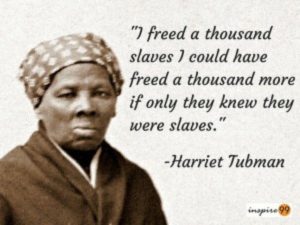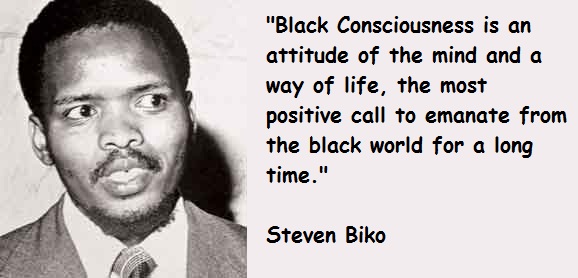
Notwithstanding the brutal hammering from European aggression and avarice, there is an aphorism from one of Africa’s vast wealth of languages that says: ‘Molapo o tlatswa ke melatswana.’ Just as it directly says for those who speak and understand Setswana, the larger stream is filled or supplemented by smaller streams. But what does this mean you ask? What could I be possibly be alluding to? Dear reader, bear with me for a few minutes as I find the right words to explain myself; I assure you that I will unpack the meaning of this African saying and how it fits into the context of this opinion piece.
In the past few weeks the winds of change, to borrow the overused words of former British Prime Minister Harold MacMillan, have been gusting with ferocity across South Africa’s higher institutions of learning. Students at universities have awaken to the fact that if they seek to see change not only in their campuses but in the country as well, they should be at the forefront of that change; waiting for government bureaucrats with their condescending language bordering on sycophancy would be a waste of time.
In actual fact the winds of change that I speak of began to blow earlier this year at the University of Cape Town (UCT) when students decided that it was enough that their university is on the land that ‘belonged’ to the murderous and racist Cecil John Rhodes, a shrewd businessman if I may say so myself, seeing his statue everyday on campus was revolting. So they took it upon themselves to destroy the statue-an action that did not sit well with liberals (house niggers) and conservatives (racists). I suspect that the destruction of Rhodes’s statue-a man who had no regard for an African life-must be tantamount to angering the ancestors as we tend to believe in African culture because I heard some mention that actions by students would have an ominous effect on the country going forward. I even heard some saying that if he were alive Nelson Mandela would not be pleased with what was taking place at UCT. White arrogance knows no bounds.
The protest against representatives of the colonialism and African oppression quickly spread to other universities across the country and suddenly, miraculously so, government apparatchiks were cured of muteness, and instead of listening or asking what the students were saying they cracked the bureaucratic whip. This is an all too common problem: nobody is interested in the cause. All they seek to do is dress up the problem, sweep it under the proverbial rug and go about life as if all is well in the land.
 The University of KwaZulu Natal (UKZN) and Rhodes University-another institution named after the man in question- heeded the example of UCT and statues of any Apartheid or colonial era actor was destroyed. Again this did not sit well with Apartheid and colonialism apologists. Students were suddenly labelled as criminals and at worst racists as majority of the students who were at the forefront of the protests were black. The actions of these students were said to be having a negative impact on the economy. But one has to ask, naïve as this may sound: who cares about an economy if it does not benefit the rest of society? These are some of the questions that have to be asked. But in this scenario an astute, unpolluted mind that was not familiar with these events might be curious and ask thus: ‘Why are (black) students protesting the presence of statues of the Apartheid and colonial era characters in their campuses?’ I would like to believe that the answer is simple: transformation.
The University of KwaZulu Natal (UKZN) and Rhodes University-another institution named after the man in question- heeded the example of UCT and statues of any Apartheid or colonial era actor was destroyed. Again this did not sit well with Apartheid and colonialism apologists. Students were suddenly labelled as criminals and at worst racists as majority of the students who were at the forefront of the protests were black. The actions of these students were said to be having a negative impact on the economy. But one has to ask, naïve as this may sound: who cares about an economy if it does not benefit the rest of society? These are some of the questions that have to be asked. But in this scenario an astute, unpolluted mind that was not familiar with these events might be curious and ask thus: ‘Why are (black) students protesting the presence of statues of the Apartheid and colonial era characters in their campuses?’ I would like to believe that the answer is simple: transformation.
It was the Irish philosopher and statesman who observed that, ‘All that is necessary for the triumph of evil is for good men to do nothing.’ South Africa and indeed the rest of the continent is haunted by timid good men doing nothing in the midst of the ‘triumph of evil’. In August at Stellenbosch University students refused to sit and do nothing in the face of the ‘triumph of evil’. Enough was enough as the popular saying goes and they latched onto the protest started by their fellow students a few months back, 40km west of the town of Stellenbosch, in Cape Town. They too were protesting the lack of transformation at their university. Afrikaans has always been an issue at institutions like Stellenbosch University, University of Pretoria, University of North West in Potchefstroom and the notorious University of Free State run by that pseudo-Mandela Jonathan Jansen. These institutions are traditionally known as Afrikaans universities and they count amongst their notorious and dangerous alumni questionable characters like P.W Botha, his successor F.W De Klerk and South Africa’s own Adolf Hitler, Hendriek Verwoerd. In fact Stellenbosch University is where Verwoerd polished his racist policies that would further plunge Africans in South Africa into economical, educational, political, psychological and social abyss after colonialism.
 Taking a leaf from the misunderstanding that happened at UCT, UKZN and Rhodes, the Stellenbosch University students produced a remarkable, enlightening, sad and infuriating documentary to better communicate their struggle. Here is one student making a remark that is both tragically disturbing and painful: ‘I feel like it’s wrong to be black. Sometimes I ask myself, when I am alone, why did God make me black…when a lot can happen in a good way when you are otherwise.’ Another student makes another statement, less startling but still disturbing 21 years into a democratic South Africa. He laments thus: ‘The colour of my skin is like a social burden.’ I will hasten to remind the reader that this documentary was not shot in the 1950s, 60s nor the 80s where Apartheid was still high on its pencil heels. It was shot in 2015.
Taking a leaf from the misunderstanding that happened at UCT, UKZN and Rhodes, the Stellenbosch University students produced a remarkable, enlightening, sad and infuriating documentary to better communicate their struggle. Here is one student making a remark that is both tragically disturbing and painful: ‘I feel like it’s wrong to be black. Sometimes I ask myself, when I am alone, why did God make me black…when a lot can happen in a good way when you are otherwise.’ Another student makes another statement, less startling but still disturbing 21 years into a democratic South Africa. He laments thus: ‘The colour of my skin is like a social burden.’ I will hasten to remind the reader that this documentary was not shot in the 1950s, 60s nor the 80s where Apartheid was still high on its pencil heels. It was shot in 2015.
Noticing that our leaders, the people we elected to fight for us, have become Rottweilers of white privilege, the African students at the universities across the land took it upon themselves to continue the struggle that was postponed in 1994. As Professor Tinyiko Maluleke of the University of Pretoria correctly points out, ‘Universities are instruments for the advancement of science and the development of society.’ By seeking to see transformation at their school the students of Stellenbosch University correctly and rightfully wish to contribute to ‘the advancement of science and the development of society’. How do they then do that if they are being discriminated? How do they contribute if they are treated as pariahs in the land of their birth to paraphrase Tshekisho Solomon Plaatjie? As I do not have the powers of an oracle to predict what tomorrow will be like, but as a jealous student of history I take my hat off for the students of UCT, UKZN, Rhodes and finally Stellenbosch University, for they refused to sit about in the face of injustice and prejudice. Whether they have come across the remarkable words of Edmund Burke or not, they refused to let evil triumph. They shamed useless government officials like the Minister of Higher Education Blade Nzimande who deliberately ignored students when they complained of racism at higher institutes of learning.
Now let me go back to the beginning when I remarked in the language of my mother and father when I said: ‘Molapo o tlatswa ke melatswana.’ Recently I published an opinion piece titled ‘South Africa: A Country of Two Nations’. In that piece I highlighted the sophisticated systematic racism that is faced by black professionals in the private sector. Despite their high education black professionals continue to be oppressed in the private sector and their cowardice is incredibly astonishing if not infuriating. Exasperated by the embarrassing sycophancy of his people in the Eastern Cape, the pioneering African intellectual the Reverend Tiyo Soga accosted them thus: ‘This “Morning Sir” of the Xhosa people whenever they see a white face is very annoying.’ Soga might have directed his criticism specifically to the Xhosa people back then but this was and still is the problem of black people in general. Just as the Reverend Tiyo Soga was annoyed by the submission of his people bordering on timidity in late 19th century, I too am annoyed by the ‘chicken’ mentality of black professionals in 2015.
They would rather keep quiet, oppressed and go about their work as if all is well in the name of ‘I have debts to pay’. Yes, and while this may be valid point until when will you be a slave, pretending to be content while anger gnaws at you inside? It is another sharp African intellectual who captures this nauseating, defeated mentality of blacks. In one of his series of I write What I Like articles Steve Biko wrote thus: ‘Black people under the Smuts government were oppressed but they were still men. They failed to change the system for many reasons which we shall not consider here. But the type of black man we have today has lost his manhood…Deep inside his anger mounts at the accumulating insult, but he vents it in the wrong direction-on his fellow man in the township, on the property of black people…In the privacy of his toilet his face twists in silent condemnation of white society but brightens up in sheepish obedience as he comes out hurrying in response to his master’s impatient call. In the home-bound bus or train he joins the chorus that roundly condemns the white man but is first to praise the government in the presence of the police or his employers.’ Biko knew his people very well. For years, just he like he did the white man and his relentless arrogance and aggression, he had studied his people as well and their embarrassing timorousness. The modern black man does not differ much in low self-esteem from the one Biko wrote about in the early 70s. Perhaps black professionals in the private sector should, as it is the natural order of things, allow ‘the large stream to be filled or supplemented by smaller streams’ and heed the example of the young ones at university. Kgotsong!
Article by Seitiso Ntlothebe
